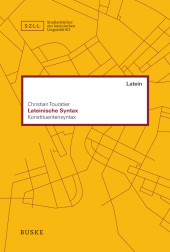
Plate Heat Exchanger Enhancement Techniques
In Support of the Energy Transition and a Circular Economy
Series: Emerging Technologies and Materials in Thermal Engineering;
- Publisher's listprice EUR 171.99
-
72 596 Ft (69 139 Ft + 5% VAT)
The price is estimated because at the time of ordering we do not know what conversion rates will apply to HUF / product currency when the book arrives. In case HUF is weaker, the price increases slightly, in case HUF is stronger, the price goes lower slightly.
- Discount 10% (cc. 7 260 Ft off)
- Discounted price 65 336 Ft (62 225 Ft + 5% VAT)
Subcribe now and take benefit of a favourable price.
Subscribe
72 596 Ft

Availability
Not yet published.
Why don't you give exact delivery time?
Delivery time is estimated on our previous experiences. We give estimations only, because we order from outside Hungary, and the delivery time mainly depends on how quickly the publisher supplies the book. Faster or slower deliveries both happen, but we do our best to supply as quickly as possible.
Product details:
- Publisher Elsevier
- Date of Publication 1 November 2025
- ISBN 9780443288562
- Binding Paperback
- No. of pages500 pages
- Size 229x152 mm
- Language English 700
Categories
Long description:
Plate Heat Exchanger Enhancement Techniques: in Support of the Energy Transition and a Circular Economy provides fundamental knowledge on the applications of the plate heat exchanger (PHE) and how it can be optimized to make energy conversion more efficient. In addition, it introduces relevant studies that explain the heat transfer mechanism of the PHE, its design, and how developing more compact and evolved heat exchangers contributes to a sustainable, cleaner, and more energy-efficient future. Researchers, scientists, engineers, professionals, and students working in nanotechnology, materials science, and sustainability will find this volume valuable to their work.
- Covers the fundamentals, concepts, and energy materials for all pillars of a circular economy
- Includes state-of-the-art green technologies and energy materials that are outlined with specific applications for energy systems and economic and societal benefits
- Examines an inter-knitted focus on energy materials and technologies - with an emphasis on reuse and recycling materials in support of conservation, efficiency, and sustainability
- Evaluates specific topics related to the synthesis and application of energy materials and their recycle, reuse, and lifecycle
- Outlines future perspectives, need, and scope of the circular economy
Table of Contents:
1. Basic and Fundamental Principles of Plate Heat Exchangers (PHEs): Thermal Storage and Sustainable Development
2. Recent Progress in PHEs
3. Basic Equations for Design and Predicting Performance of PHEs
4. Heat Transfer Enhancement Techniques in PHEs (Types of Inserts and tubes)
5. Numerical Study of Heat Transfer Enhancement in PHEs
6. Finite Time Thermodynamics Analysis and Research in PHEs
7. Methods of Process Parameters Optimization in Performance of PHEs
8. Fouling and Corrosion Problems and Prevention of PHEs
9. Industrial PHEs: Operation and Maintenance Towards Energy Perspectives
10. Scale Up and Commercialization of PHEs-State of the Art Initiatives and Issues
11. Consecutive Charging and Discharging of PCM-based PHE
12. Time-dependent Simulation Model for the PCM Phase Transition in PHEs
13. Nanofluids with Nano-and Microstructure Surface in PHEs
14. Process Intensification of PHEs in the Industry Sector
15. Thermal Performance of Prototype PHE with Minichannels
16. Heat transfer augmentation techniques in PHEs
17. Micro-and Nanoscale Heat Transfer and Fluid Flow in PHEs
18. PHEs in Power Generation and Energy Storage
19. Usage of Radiation Shielding Materials and Heat Transfers in PHEs
20. Recent Advances in Different Machine Learning Techniques in PHEs
21. Applications of Neural Networks and Fuzzy-based Algorithms for Nanofluid-based Heat Transfer Studies in PHEs
22. Bottlenecks Approach for Achieving Circular Economy and the Energy Transition
23. Exergoeconomic Analysis of PHEs based on Joule/Brayton Cycle and Rankine Cycle
24. Integration of Industrial Waste Heat Recover Through PHE Based Systems, Circular Economy and Efficiency Measures










